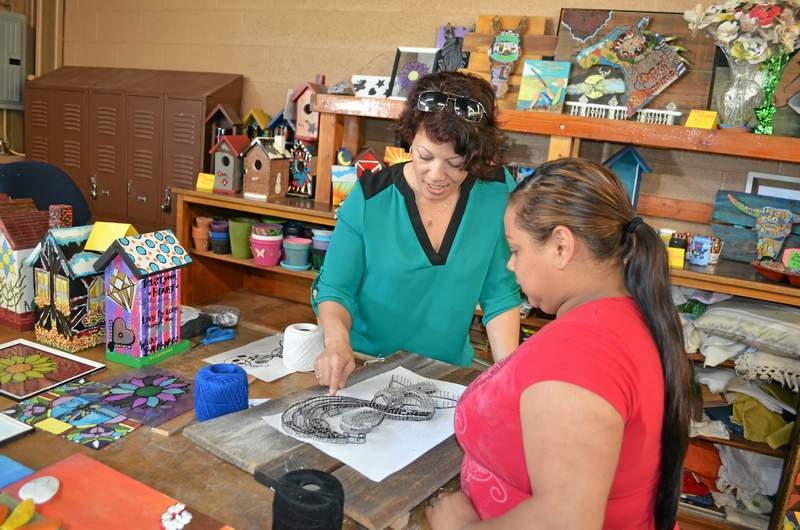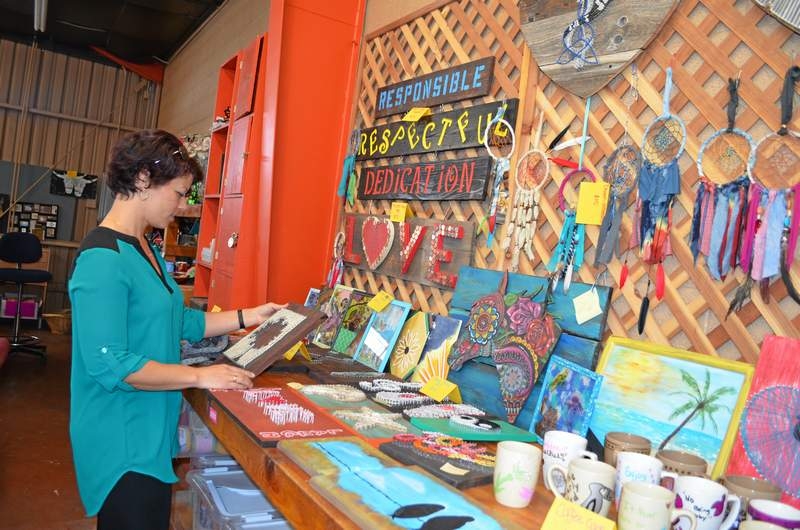Tehama County Creates Washington Street Productions
Provides Meaningful Work, Addresses Client Barriers, Increases Work Participation Rate
How do you provide CalWORKs clients meaningful work and job training in a small rural county where steady employment opportunities are scarce?
Create your own workplace. That’s just what the Tehama County Department of Social Services has done with its innovative Washington Street Productions, an employment program designed to provide immediate, meaningful subsidized work for clients, while addressing barriers and increasing job skill development, and also increase the work participation rate for welfare recipients.
“It’s been mind blowingly successful,” said Department Director Mandy Sharp.
The CalWORKs Welfare to Work (WTW) Program faces unique challenges. It is a federally funded, structured employment and training program designed to promote self-sufficiency for adults currently receiving assistance. CalWORKs recipients are assessed to determine activities and services that will lead them to self-sufficiency, including identifying and addressing severe barriers including mental health issues, drug and alcohol addiction, and domestic violence. In Tehama County, more than 30% of the WTW caseload has at least one of these barriers.
Tehama County identified the need for a work program that addresses participant’s barriers and teaches them life and work skills, in a safe and consistent environment, while also contributing to the hourly work requirements set forth by the state and federal government. Washington Street Productions was developed through a partnership between the Tehama County Department of Social Services and the local Workforce Investment Agency, the Job Training Center. Job Training Center has been providing employment and training opportunities to CalWORKs clients for over a decade. In addition to Washington Street Productions, the Job Training Center also administers a subsidized employment program funded through AB 98. Through the AB 98 program, WTW participants are employed by Job Training Center in lead positions for Washington Street Productions. These lead positions are generally made up of individuals who successfully completed Washington Street Productions, and were reappraised and determined to be appropriate for longer term subsidized employment opportunities.
This program provides a 40-hour work week to participants for a minimum of a 30-day period, five days per week, at $11.00 an hour of unanticipated income. The goal of the project is to engage clients in meaningful work activities, which includes production of goods through wood working and craftsmen’s skills such as building garden boxes, picture frames, furniture, wooden signs, picnic tables and benches, chalkboards, bird houses, walking sticks, easels, yard art, stepping stones, frames, beading, clocks and mobiles, and tie quilts that are sold to the public. This program teaches work related soft skills, applies behavior modification techniques, evaluates work readiness, and provides CalWORKs WTW staff with relevant information for developing the ongoing service strategies for their clients.
This program is funded through Assembly Bill 74. Costs covered include participant wages, taxes and workers compensation, staff costs, and operating expenses for the facility, equipment, materials and supplies. To the extent possible, the raw materials are reclaimed/recycled items from the landfill, secondhand stores, contractors, manufacturers, or donated. Finished products sold, return revenue back into the project for the replacement of goods and materials. A cost benefit of the program includes participants obtaining employment after participation in this program, removing them from CalWORKs assistance and saving government funds long term.
Washington Street Productions provides opportunities to address barriers with a work first mentality, contributing to the success of the participant and the WTW program requirements. The program targets WTW participants who have been in long term sanction status and participants who are drawn into the monthly WPR sample and are in active or non-compliance status. This program engages participants quickly into an activity where they are set up to meet their monthly hourly requirement. Through July 2016, an average of 75.68% of the participants in the program met their Work Participation Rate. When comparing WPR data in 2015 (pre-implementation) to 2016 (post-implementation), data shows that there is a 10-27% positive impact on WPR after the implementation of Washington Street Productions.
Of those who completed the program, 42.19% of the participants continued participating in an employment activity. Of that 42.19%, 70.37% of the participants obtained unsubsidized employment. Washington Street Productions has increased the work participation rate for welfare recipients.
The California State Association of Counties (CSAC) has produced a brief video on the program.



